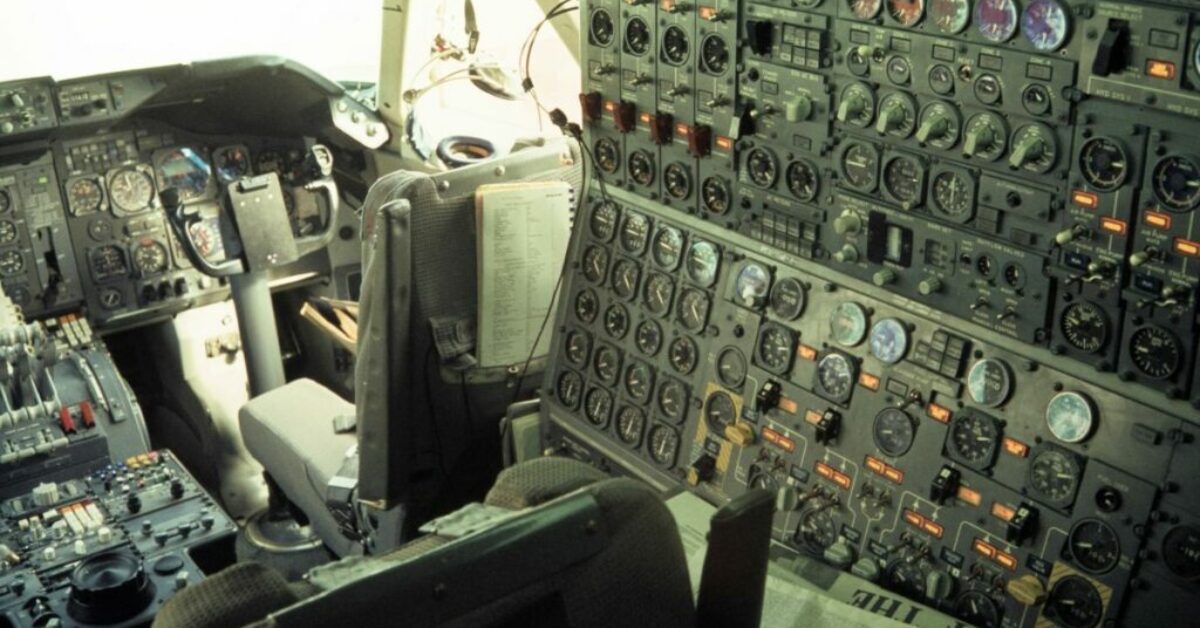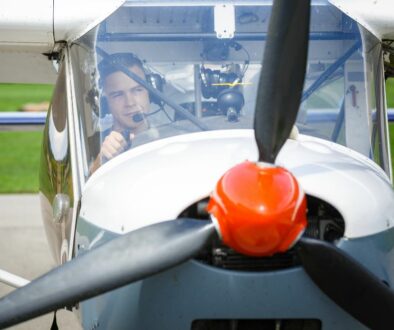How To Become A Flight Engineer?
If you are someone who loves the thrill of flying and enjoys working with machines, then becoming a flight engineer might be the perfect career path for you. A flight engineer plays a crucial role in ensuring the safety and efficiency of flights, working in close coordination with the pilots and other crew members. In this article, we will explore the steps you need to take to become a flight engineer, the skills you need to possess, what the role entails, and the benefits of working as a flight engineer.
Steps To Becoming A Flight Engineer
Becoming a flight engineer is a dream job for many aviation enthusiasts. It is a challenging and exciting career that requires a great deal of education, training, and experience. Here are some additional details on the steps to becoming a flight engineer:
- Complete the Appropriate Education and Training
As mentioned earlier, most airlines require a minimum of a bachelor’s degree in aerospace engineering, aviation technology, or aviation maintenance management. However, having a degree in another related field, such as mechanical engineering or physics, can also be beneficial. In addition to formal education, it is also essential to have some experience in the field of aviation. This can be obtained through internships or apprenticeships.
- Obtain Your License from the FAA
To become a flight engineer, you must obtain a license from the Federal Aviation Administration (FAA). This requires passing a written and practical exam that tests your knowledge of aircraft systems, safety procedures, and maintenance. You will also need to complete a certain number of flight hours and pass a physical examination to ensure that you meet the medical standards required for the job.
- Gain Experience as a Flight Engineer
After obtaining your license, you will need to gain experience as a flight engineer. Many airlines prefer candidates who have prior experience working on aircraft or in related positions. You can gain experience by working as an assistant or apprentice to a more experienced flight engineer or by working in other positions within the aviation industry. For more internship or apprenticeship opportunities, check out official websites like APPRENTICESHIP.GOV or industry leaders like BOEING, BOMBARDIER, and AeroVironment.
One way to gain experience is to work for a smaller airline or charter company. These companies often have fewer resources and require their employees to take on multiple roles, which can provide valuable experience. Another way to gain experience is to work as a mechanic or technician and learn about aircraft systems and maintenance. You can check out authentic online job portals like Indeed and ZipRecruiter for these jobs.
Also, here are some Aviation Handbooks & Manuals you can check out for more theoretical information. - Advance to Higher Positions
As you gain more experience, you can then advance to higher positions within the aviation industry. For example, you may be promoted to lead flight engineer or chief mechanic. Advancement in this field is typically based on performance and experience, as well as additional education and training.
Some flight engineers go on to become pilots or aviation managers. Others may specialize in a particular type of aircraft or system, such as avionics or propulsion. The possibilities for career advancement are endless, and the sky’s the limit!
Becoming a flight engineer requires a great deal of dedication, hard work, and perseverance. With the right education, training, and experience, however, it can be a highly rewarding career that offers a unique and exciting perspective on the world of aviation.
Skills Needed For Becoming A Flight Engineer
Becoming a flight engineer requires a unique blend of technical knowledge, problem-solving skills, and excellent communication abilities. Some of the critical skills needed to become a flight engineer include:
- Strong technical and mechanical skills: A flight engineer needs to have a thorough understanding of aircraft systems, including engines, fuel systems, electrical systems, and other critical components.
- Excellent problem-solving skills: Flight engineers must be able to quickly identify and solve problems that may arise during a flight, such as malfunctioning equipment or unexpected weather conditions.
- Strong communication skills: Flight engineers must be able to effectively communicate with pilots, cabin crew, and other personnel during a flight to ensure that everyone is on the same page and working towards a common goal.
- Attention to detail: Flight engineers must pay close attention to details and be meticulous in their work to ensure that all systems are functioning correctly and safely.
What is A Flight Engineer?
A flight engineer is a senior member of the flight crew who is responsible for ensuring that all aircraft systems are functioning correctly before, during, and after a flight. They work closely with the pilot and co-pilot to monitor critical systems such as fuel, hydraulic, and electrical systems. They are also responsible for troubleshooting any issues that may arise during a flight, ensuring that passengers and crew members remain safe and informed throughout the journey.
The role of a flight engineer has evolved over the years, and with advances in technology, many of the traditional duties have been automated. However, flight engineers are still considered a vital part of the flight crew, and their knowledge and expertise are highly valued in the aviation industry.
Flight engineers are highly trained professionals who have undergone rigorous training and certification programs. They must have a thorough understanding of aircraft systems and be able to quickly diagnose and resolve any issues that may arise during a flight. Additionally, flight engineers must have excellent communication skills and be able to work effectively as part of a team.
One of the most important responsibilities of a flight engineer is to ensure that the aircraft is properly balanced and that the weight distribution is within safe limits. This is critical for maintaining the stability and control of the aircraft during takeoff, flight, and landing. Flight engineers use sophisticated computer systems and instruments to monitor the aircraft’s weight and balance, and they make adjustments as needed to ensure that the aircraft is safe to fly.
Flight engineers also play an important role in emergency situations. They are trained to handle a wide range of emergency scenarios, from engine failures to cabin depressurization. In the event of an emergency, flight engineers work closely with the pilot and co-pilot to assess the situation and take appropriate action to ensure the safety of the passengers and crew.
Overall, flight engineers are a critical part of the flight crew, and their expertise and knowledge are essential for ensuring the safe and efficient operation of aircraft. They work tirelessly behind the scenes to ensure that every flight is a success, and their dedication and commitment to safety are greatly appreciated by passengers and crew members alike.
The Benefits of Working as A Flight Engineer
Working as a flight engineer can be a highly rewarding career path, offering numerous benefits and opportunities for growth and advancement. Some of the key benefits include:
- High earning potential: Flight engineers typically earn a competitive salary, with the potential for significant bonuses and other incentives based on performance and experience. According to ZipRecruiter, the average salary in the United States is around $118,512/year as of July 2024.
- Opportunities for travel and adventure: As a flight engineer, you will have the opportunity to travel to new and exciting destinations, experiencing different cultures and lifestyles.
- Job security: The aviation industry is an essential part of the global economy, and flight engineers are in high demand worldwide.
- Opportunities for career advancement: With experience and additional education and training, flight engineers can advance to higher positions within the aviation industry, such as lead flight engineer or chief mechanic.
Becoming a flight engineer is a highly specialized career path that requires a unique blend of technical knowledge, problem-solving skills, and excellent communication abilities. However, for those who have a passion for aviation and enjoy working with machines, it can be a highly rewarding and fulfilling career path, offering numerous opportunities for growth, travel, and adventure.




